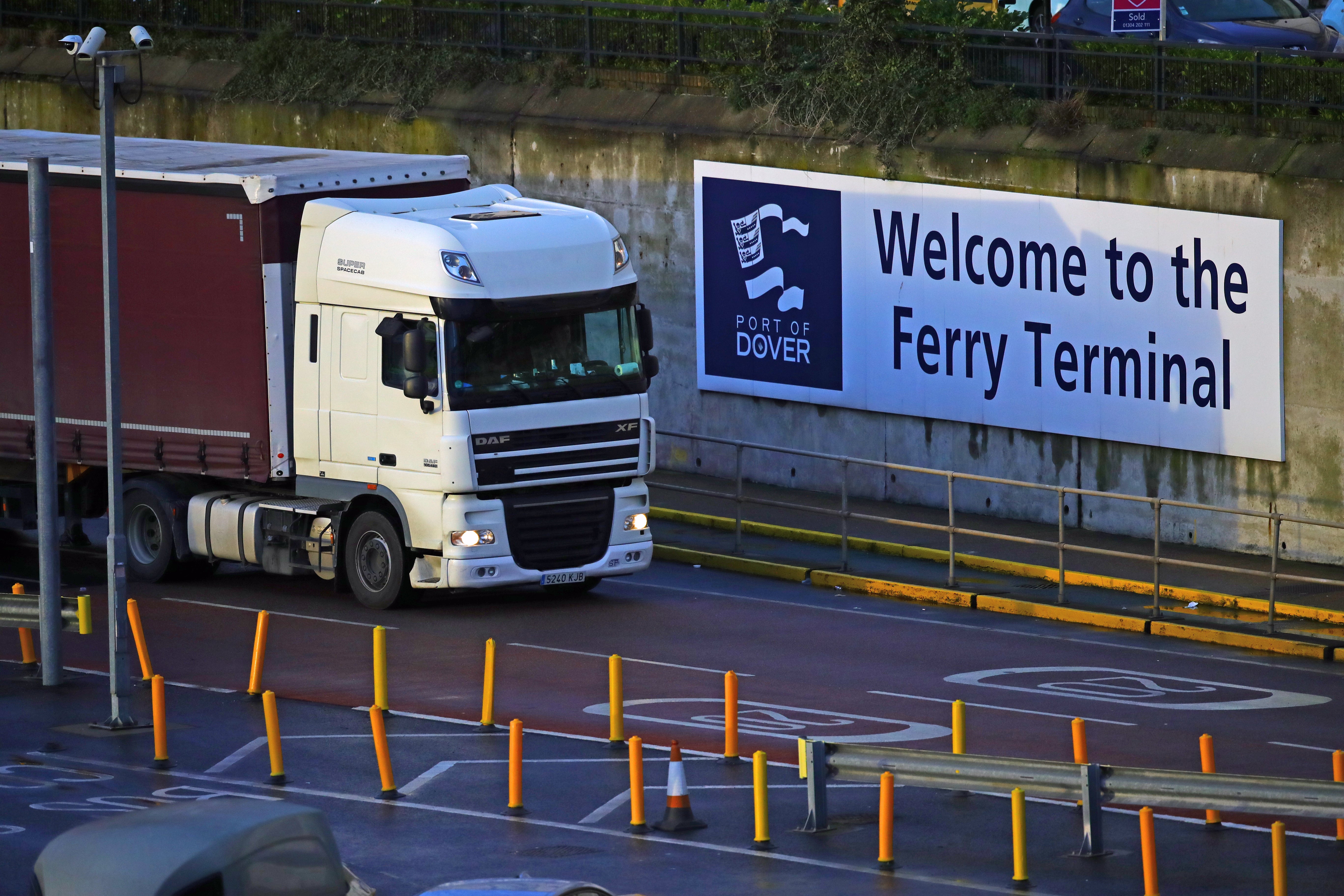New post-Brexit rules set to hit food supply chains in new year – industry body
The British Frozen Food Federation said new border controls on animal and plant products from the EU could see major delays at ports from January 1.

Your support helps us to tell the story
From reproductive rights to climate change to Big Tech, The Independent is on the ground when the story is developing. Whether it's investigating the financials of Elon Musk's pro-Trump PAC or producing our latest documentary, 'The A Word', which shines a light on the American women fighting for reproductive rights, we know how important it is to parse out the facts from the messaging.
At such a critical moment in US history, we need reporters on the ground. Your donation allows us to keep sending journalists to speak to both sides of the story.
The Independent is trusted by Americans across the entire political spectrum. And unlike many other quality news outlets, we choose not to lock Americans out of our reporting and analysis with paywalls. We believe quality journalism should be available to everyone, paid for by those who can afford it.
Your support makes all the difference.Food supply disruption is set to hit the UK in the new year as new post-Brexit restrictions come into force, a leading industry body has warned.
The British Frozen Food Federation (BFFF) said new border controls on animal and plant products from the EU could see major delays at ports in the New Year.
New rules from January 1 state that importers must make a full customs declaration on goods entering the UK from the EU or other countries.
Whilst the new UK rules will be introduced in stages, we are concerned that not enough planning has been done to ensure the new requirements are understood by everyone in the food supply chain
Traders will no longer be able to delay completing full import customs declarations for up to 175 days, a measure that was introduced to cope with the disruption of Brexit.
BFFF chief executive Richard Harrow said: “Whilst the new UK rules will be introduced in stages, we are concerned that not enough planning has been done to ensure the new requirements are understood by everyone in the food supply chain.
“A good example of this is a new HMRC (HM Revenue and Customs) process called Goods Vehicle Management System (GVMS).
“The system is designed to enable HMRC to keep a track of loads containing meat and plant products in fast-moving roll-on-roll-off ports such as Dover.
“The system requires haulage companies to pre-lodge the arrival of a load to the UK before it departs from the EU port of embarkation.
We are still finding new elements of the process that our members are unaware of, or lack of clarity on what they need to do to comply with the regulations
“Whilst many UK hauliers are well prepared for this change, we suspect many EU hauliers are not.”
He added: “Whilst the UK authorities have said they will not stop vehicles that do not complete all the documents correctly, this assumes the EU port will allow a vehicle without the correct paperwork to leave port.”
The UK imports five times the amount of food it exports to the EU, so the potential for massive delays and food supply issues in January is high.
Mr Harrow added: “We are still finding new elements of the process that our members are unaware of, or lack of clarity on what they need to do to comply with the regulations.
“With only days to go before the new rules, we remain concerned that January could be a fraught month for our members.”